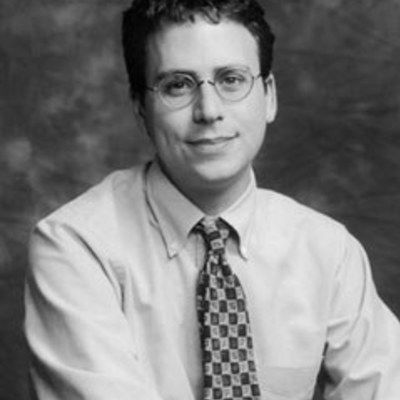Bounty Hunters
A war on wolves in Utah.
Showing 25 articles matching fk33.cc_Magnesium Sulfate Monohydrate Manufacturers in China.
A war on wolves in Utah.
Jeremy Miller Harper's Dec 2016 25min Permalink
Chess in Cuba.
Brin-Jonathan Butler Southwest the Magazine May 2016 15min Permalink
On oil spills in Colombia.
Jessica Camille Aguirre Harper's Feb 2021 15min Permalink
Ray Bowman and Billy Kirkpatrick, who began boosting together as teenagers, were arrested only twice during their prolific partnership. The first time was for stealing 38 records from a K-Mart in 1974. The second arrest came in 1997. In between, Bowman and Kirkpatrick robbed 27 banks, including the single biggest haul in United States history: $4,461,681 from the Seafirst Bank in suburban Tacoma.
Alex Kotlowitz New Yorker Jul 2002 20min Permalink
Separated from his older brother at a train, five-year-old Saroo Munshi Khan found himself lost in the slums of Calcutta. In his 20s, living in Australia, he began his search for his birth home armed with nothing but hazy memories and Google Earth.
David Kushner Vanity Fair Oct 2012 20min Permalink
In 1970, he was plucked from Saigon to attend West Point. He got his degree and went home to fight, but instead spent six years in a reeducation camp. Then, somehow, he ended up teaching high school in D.C.
Chip Scanlan Washington Post Magazine Jul 1992 30min Permalink
Half a century ago, an American commando vanished in the jungles of Laos. In 2008, he reappeared in Vietnam, reportedly alive and well. But nothing was what it seemed.
Matthew Shaer The Atavist Magazine Feb 2017 35min Permalink

Developed by early computer engineers in their spare time, improved in University comp-sci labs, and ultimately sold in coffeeshops for ten cents per game. Inside one of the most influential games ever played.
Stewart Brand Rolling Stone Dec 1972 35min Permalink
Omar Khadr was 15 when he was captured in Afghanistan in 2002. He was held in Guantanamo for years without charges. He was tortured. And earlier this month, after nearly 13 years behind bars, he was released on bail.
Michelle Shephard The Toronto Star May 2015 15min Permalink

In the days after 9/11, a photo of an unknown man falling from the South Tower appeared in publications across the globe. This is the story of that photograph, and of the search to find the man pictured in it.
To read the transcript of Erin Hunter’s trial, which runs all of 81 pages and can be digested in half an hour, is to encounter a disregard for human dignity instrumental in producing the most sprawling system of incarceration in the world.
Nick Chrastil The Atavist Magazine Dec 2019 30min Permalink
“The conditions in America today do not much resemble those of 1968. In fact, the best analogue to the current moment is the first and most consequential such awakening—in 1868.”
Adam Serwer The Atlantic Sep 2020 30min Permalink

“Donald J. Trump paid $750 in federal income taxes the year he won the presidency. In his first year in the White House, he paid another $750.”
Russ Buettner, Susanne Craig, Mike McIntire New York Times Sep 2020 40min Permalink
Hartwick College didn’t really mean to annihilate the U.S. economy. A small liberal-arts school in the Catskills, Hartwick is the kind of sleepy institution that local worthies were in the habit of founding back in the 1790s; it counts a former ambassador to Belize among its more prominent alumni, and placidly reclines in its berth as the number-174-ranked liberal-arts college in the country. But along with charming buildings and a spring-fed lake, the college once possessed a rather more unusual feature: a slumbering giant of compound interest.
Paul Collins Lapham's Quarterly Sep 2011 Permalink
But despite all that has been promised, almost nothing has been built back in Haiti, better or otherwise. Within Port-au-Prince, some 3 million people languish in permanent misery, subject to myriad experiments at "fixing" a nation that, to those who are attempting it, stubbornly refuses to be fixed. Mountains of rubble remain in the streets, hundreds of thousands of people continue to live in weather-beaten tents, and cholera, a disease that hadn't been seen in Haiti for 60 years, has swept over the land, infecting more than a quarter million people.
Janet Reitman Rolling Stone Aug 2011 50min Permalink
A conversation with the 88-year-old abstract painter.
PALTROW: Did you design camouflage while in the army?
KELLY: I did posters. I was in what they called the camouflage secret army. This was in 1943. The people at Fort Meade got the idea to make rubber dummies of tanks, which we inflated on the spot and waited for Germans to see through their night photography or spies. We were in Normandy, for example, pretending to be a big, strong armored division which, in fact, was still in England. That way, even though the tanks were only inflated, the Germans would think there were a lot of them there, a lot of guns, a whole big infantry. We just blew them up and put them in a field.
Ellsworth Kelly, Gwyneth Paltrow Interview Oct 2011 25min Permalink
As the critic Lewis Mumford wrote half a century ago, “The right to have access to every building in the city by private motorcar in an age when everyone possesses such a vehicle is the right to destroy the city.” Yet we continue to produce parking lots, in cities as well as in suburbs, in the same way we consume all those billions of plastic bottles of water and disposable diapers.
Michael Kimmelman New York Times Jan 2012 Permalink
A former first-string tackle considers the green zone as a war zone:
Just as football has evolved in accordance with the evolving business ethic of American society, so has it evolved in accordance with the changing strategic assumptions about war. The development (or rebirth) of the T-formation in football coincided almost exactly with the development of a new era of mobility and speed in warfare best exemplified in the Blitzkrieg tactics of the German armies in Europe in 1939-40. The T-formation soon overwhelmed the “Maginot Line” mentality of traditional football, based as it was on rigid lines and massive concentrations of defensive and offensive power.
Wilcomb E. Washburn The New Republic Jul 1977 10min Permalink

Ricky Rodriguez was born in the role of the messiah. His father was David Berg, the leader of the polygamous/incestuous cult The Children of God, which published a book documenting his early life:
In 1982 a shop in Spain printed several thousand copies of a book that was then distributed to group members around the world. Bound in faux leather, illustrated with hundreds of photographs, the 762-page tome meticulously chronicled Ricky's young life and was intended as a child-rearing manual for families. Its title, The Story of Davidito, was stamped in gold. With its combination of earnest prose and unabashed child pornography, it is perhaps the most disturbing book ever published in the name of religion.
Eventually, he left the cult and found work as an electrician. But revenge called him back.
Peter Wilkinson Rolling Stone Jul 2005 Permalink
An investigation into slavery in Mauritania:
An estimated 10% to 20% of Mauritania’s 3.4 million people are enslaved — in “real slavery,” according to the United Nations’ special rapporteur on contemporary forms of slavery, Gulnara Shahinian. If that’s not unbelievable enough, consider that Mauritania was the last country in the world to abolish slavery. That happened in 1981, nearly 120 years after Abraham Lincoln issued the Emancipation Proclamation in the United States. It wasn’t until five years ago, in 2007, that Mauritania passed a law that criminalized the act of owning another person. So far, only one case has been successfully prosecuted.
Edythe McNamee, John D. Sutter CNN Mar 2012 30min Permalink
Almost five years ago, the author’s 13-year-old niece was murdered in her bedroom in suburban New Delhi. Since then, both of her parents have spent time in jail. Evidence, bungled by police, points to another possible killer. The trial has not yet begun.
Shree Paradkar The Toronto Star Jan 2013 25min Permalink
A thousand years ago, huge pyramids and earthen mounds stood where East St. Louis sprawls today in Southern Illinois... At the city's apex in 1100, the population exploded to as many as 30 thousand people. It was the largest pre-Columbian city in North America, bigger than London or Paris at the time.
Annalee Newitz Ars Technica Dec 2016 30min Permalink
Why little has changed in popular American style in the last 20 years.
Why is this happening? In some large measure, I think, it’s an unconscious collective reaction to all the profound nonstop newness we’re experiencing on the tech and geopolitical and economic fronts. People have a limited capacity to embrace flux and strangeness and dissatisfaction, and right now we’re maxed out.
Kurt Andersen Vanity Fair Jan 2012 15min Permalink

At 25, Stephen Glass was the most sought-after young reporter in the nation’s capital, producing knockout articles for magazines ranging from The New Republic to Rolling Stone. Trouble was, he made things up—sources, quotes, whole stories—in a breathtaking web of deception that emerged as the most sustained fraud in modern journalism.
Buzz Bissinger Vanity Fair Sep 1998 30min Permalink
An essay drawn from the introduction of Davidson’s iconic book Subway, first published in 1986:
To prepare myself for the subway, I started a crash diet, a military fitness exercise program, and early every morning I jogged in the park. I knew I would need to train like an athlete to be physically able to carry my heavy camera equipment around in the subway for hours every day. Also, I thought that if anything was going to happen to me down there I wanted to be in good shape, or at least to believe that I was. Each morning I carefully packed my cameras, lenses, strobe light, filters, and accessories in a small, canvas camera bag. In my green safari jacket with its large pockets, I placed my police and subway passes, a few rolls of film, a subway map, a notebook, and a small, white, gold-trimmed wedding album containing pictures of people I’d already photographed in the subway. In my pants pocket I carried quarters for the people in the subway asking for money, change for the phone, and several tokens. I also carried a key case with additional identification and a few dollars tucked inside, a whistle, and a small Swiss Army knife that gave me a little added confidence. I had a clean handkerchief and a few Band-Aids in case I found myself bleeding.
Bruce Davidson New York Review of Books Dec 2011 10min Permalink